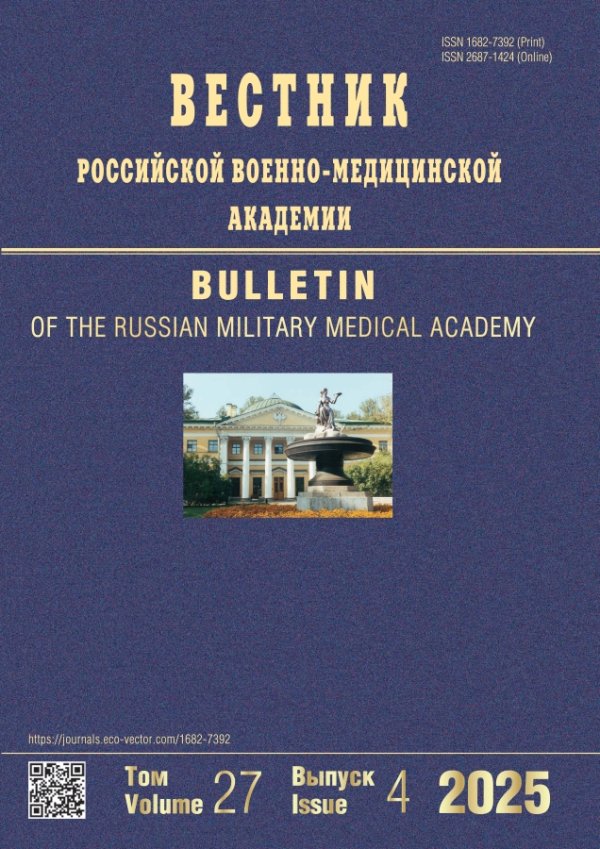Physiological characteristics of cognitive functions of cadets with military-training experience
- Authors: Petrenko MI1, Pavlov KI1, Syrtsev AV1, Archimuk AN1, Mukhin VN2, Sysoev VN3
-
Affiliations:
- Военный учебно-научный центр Военно-морского флота «Военно-морская академия»
- Институт экспериментальной медицины
- Военно-медицинская академия им. С.М. Кирова
- Issue: Vol 21, No 2 (2019)
- Pages: 173-177
- Section: Articles
- URL: https://journals.rcsi.science/1682-7392/article/view/25939
- DOI: https://doi.org/10.17816/brmma25939
- ID: 25939
Cite item
Full Text
Abstract
Full Text
##article.viewOnOriginalSite##About the authors
M I Petrenko
Военный учебно-научный центр Военно-морского флота «Военно-морская академия»
Email: youngexp@yandex.ru
Санкт-Петербург
K I Pavlov
Военный учебно-научный центр Военно-морского флота «Военно-морская академия»Санкт-Петербург
A V Syrtsev
Военный учебно-научный центр Военно-морского флота «Военно-морская академия»Санкт-Петербург
A N Archimuk
Военный учебно-научный центр Военно-морского флота «Военно-морская академия»Санкт-Петербург
V N Mukhin
Институт экспериментальной медициныСанкт-Петербург
V N Sysoev
Военно-медицинская академия им. С.М. КироваСанкт-Петербург
References
- Баевский, Р.М. Анализ вариабельности сердечного ритма при использовании различных электрокардиографических систем / Р.М. Баевский // Вестн. аритмологии. - 2001. - № 24. - С. 65-87.
- Бердников, Д.В. Психофизиологические основы организации регуляции целенаправленной деятельности (обзор литературы) / Д.В. Бердников, В.Я. Апчел, И.И. Бобынцев // Экология человека. - 2016. - № 10. - С. 37-46.
- Гнездицкий, В.В. Обратная задача ЭЭГ и клиническая электроэнцефалография / В.В. Гнездицкий. - М.: Медпресс-информ, 2004. - 624 с.
- Зенков, Л.Р. Функциональная диагностика нервных болезней / Л.Р. Зенков, М.А. Ронкин. - М.: Медпресс-информ, 2013. - 488 с.
- Павлов, К.И. Вариабельность сердечного ритма в изучении когнитивных функций и военно-профессиональной адаптации / К.И. Павлов [и др.] // Мед. акад. журн. - 2017. - Т. 17, № 4. - С. 7-16.
- Bernardi, L. Physical activity influences heart rate variability and very-low-frequency components in Holter electrocardiograms / L. Bernardi [et al.] // Cardiovasc Res. - 1996. - Vol. 32, № 2. - P. 234-237.
- Delgado-Moreno, R. Combat Stress Decreases Memory of Warfighters in Action / R. Delgado-Moreno, J.J. Robles-Pérez, V.J. Clemente-Suárez // J. Med. Syst. - 2017. - Vol. 41, № 8. - P. 124.
- Stenfors, C.U., Executive Cognitive Functioning and Cardiovascular Autonomic Regulation in a Population-Based Sample of Working Adults / C.U. Stenfors [et al.] // Front Psychol. - 2016. - Vol. 7. - P. 1536.
Supplementary files







